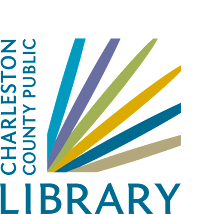 We begin our discussions for 2011 with The Fourth Part of the World: The Race for the Ends of the Earth, and the Epic Story of the Map that Gave America Its Name by Toby Lester. In 2003, the Library of Congress bought the only surviving copy of the Waldseemüller world map of 1507, the map that gave America its name, for the unprecedented sum of $10 million. This thrilling historical adventure story provides a microhistory of the making of the map itself and a macrohistory of the Age of Discovery and the evolution of our own contemporary world view.
We begin our discussions for 2011 with The Fourth Part of the World: The Race for the Ends of the Earth, and the Epic Story of the Map that Gave America Its Name by Toby Lester. In 2003, the Library of Congress bought the only surviving copy of the Waldseemüller world map of 1507, the map that gave America its name, for the unprecedented sum of $10 million. This thrilling historical adventure story provides a microhistory of the making of the map itself and a macrohistory of the Age of Discovery and the evolution of our own contemporary world view.Maps reflect the world view of the people who create them, and they also serve to shape the world view of those who later use them. Lester says the Waldseemüller map is "the backdrop for something new: a modern epic of Western discovery and manifest destiny in which European explorers, like Odysseus and Alexander and Aeneas before them, wander the known world, roam the high seas, and arrive at unknown shores." However, he says, the map also represents an ancient tradition in which "geography is philosophy--and in which the appearance on a map of the fourth part of the world is a humbling reminder of all that still remains unknown. What the map ultimately charts, in other words, is nothing less than the contours of the human experience itself: the never-ending attempt to imagine a place for ourselves in the world." What can we understand about ourselves as Westerners, as Americans, from learning about this revolutionary map? Can we see its influence in our history? How do we view our world and our place in it today? Is this view changing?
If you are reading the hardcover edition of the book, you can find a select chronology of people, events, and maps in The Fourth Part of the World at the author's website, http://www.tobylester.com/. (The paperback edition includes these references.) You can also view an interactive version of the Waldseemüller map, listen to Lester discuss his book and the images in it, and find a link to a podcast of Lester talking about how America got its name on Public Radio International's This American Life.
According to Chris Anderson, editor in chief of WIRED, "Toby Lester has written a page-turning story of the creation of what amounts to a sixteenth-century Google Earth, a revolutionary way to see the world. It inspired generations of explorers then and will inspire readers now." We hope you will join the discussion: Tuesday, January 4 at 6:30 p.m. at Main Library; Thursday, January 20 at 11:00 a.m. at West Ashley Branch Library; or here on the blog.


 Our book for the October discussions,
Our book for the October discussions, 







